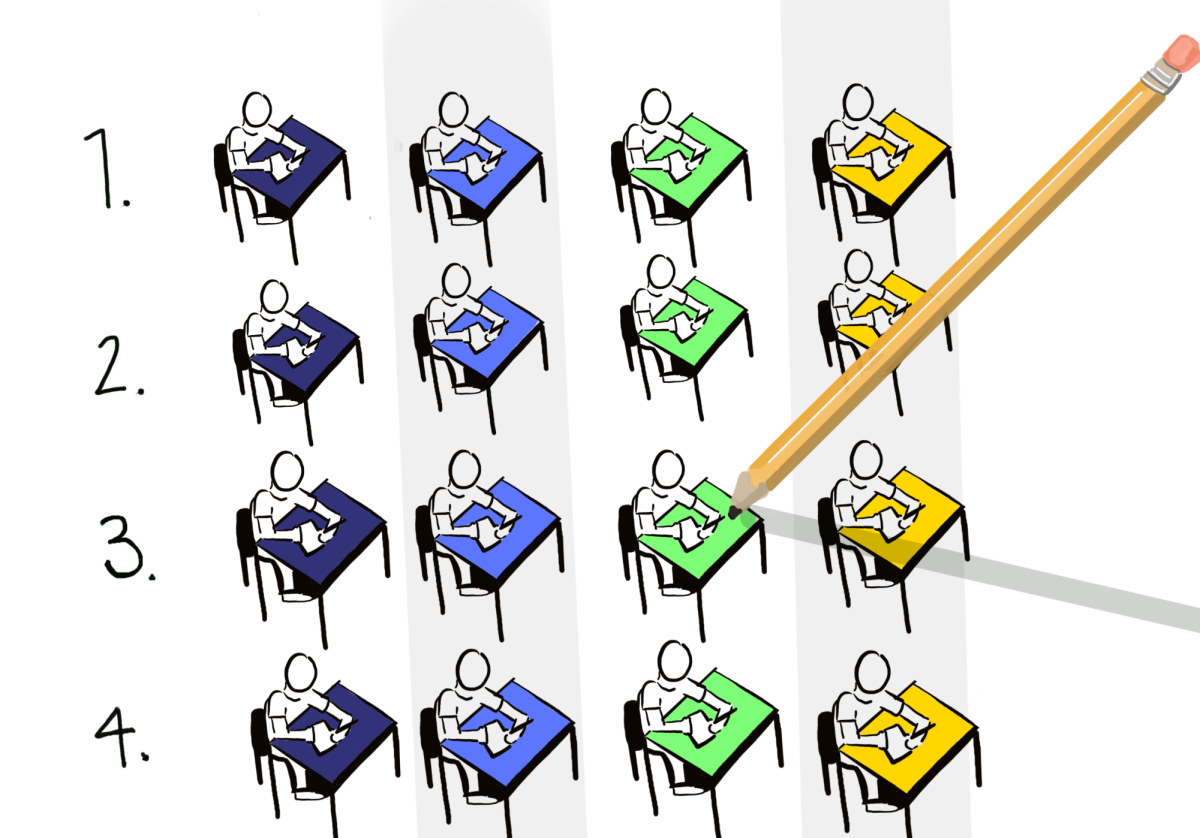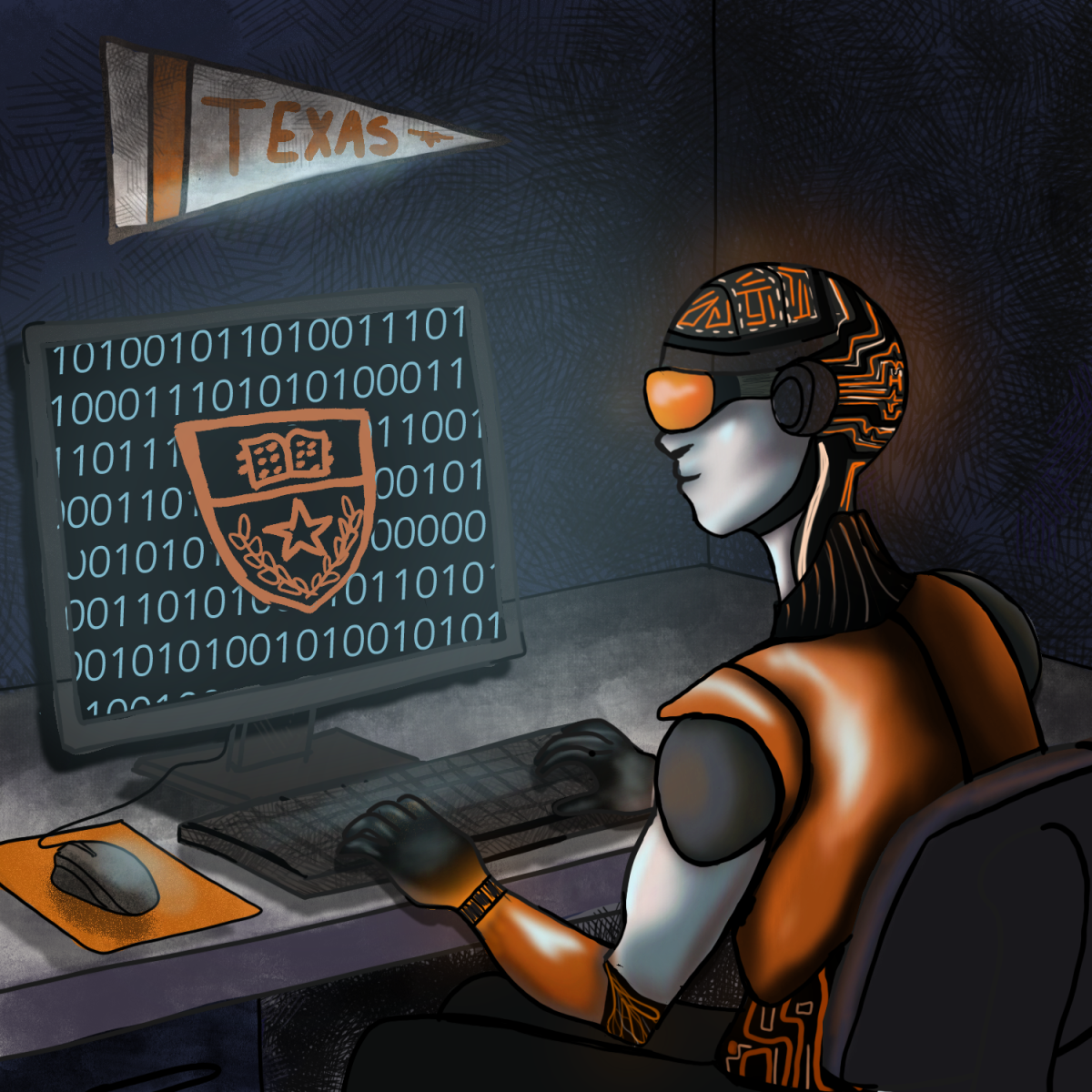Rarely do infrastructure changes galvanize business students to the point of petition. The McCombs School of Business’ Millennium Lab transition is the exception. Though the plans to convert the Mill Lab, now a computer lab, into active learning classrooms by fall were only recently announced, rumors and petitions to save the lab have been circulating since last spring. Now it’s official: Two high-tech classrooms will replace the lab, and these classrooms might not be for everyone in McCombs. What students have to realize, though, is that this is a forward-thinking attempt to transform McCombs into what Undergraduate Programs dean David Platt calls the “best forum for undergraduate business education in the country.”
While McCombs makes these changes, which Platt has described as a “pilot” for larger renovations to come, business students will have to take a loss.
A cursory look around the Mill Lab at a peak hour reveals just how dependent business students are on the facility. The lab is often the liveliest place in McCombs, serving as a haven for students collaborating on group projects as well as those using specialized business software and desktop computers to complete class projects.
“Students depend on this collaborative environment where you can be loud, meet in groups and utilize resources that not all students have,” marketing and Plan II honors senior Satvika Anantharayan said.
The uproar that ensued when rumors spread about the change last spring should have been expected; almost immediately, there was a nearly 600-member Facebook group, an extensive Google Doc discussing the plan and a formal petition to ‘save the Mill Lab.’
Although the onslaught of complaints did not change administrators’ plans, those complaints have not fallen on deaf ears. Platt has been incredibly receptive to student feedback, working with a Mill Lab Transition Student Advisory Committee, hosting a town hall meeting and inviting students to personally email him with comments.
“When we have this once-in-a-30-year opportunity to renovate a building, we want to do it right,” Platt said.
At a town hall addresing the planned changes last Tuesday, Platt revealed that 20 percent of the current lab would be reserved for group collaboration space and that definite plans for a variety of facility improvements, including a software cloud that will give students remote access to the specialized programs that are currently in the lab, were being made.
“The fixes they’re making are really intended to address the students’ problems — not just offer a Band-Aid fix,” said Anantharayan, who also sat on the student advisory committee.
Despite the thorough attempts to make the transition as smooth as possible, McCombs is being very particular about who will have access to the $500,000 active learning classrooms. For the first year, one of the rooms will be used normally as a space where classes meet for the entire semester. The other room will be used by different classes for a few days during the semester as needed. In order to determine which classes will have access to the classrooms, faculty members are being asked to create proposals, with BBA capstone classes getting priority. Outside of class, business students will not be able to use the classrooms the way they currently use the Mill Lab. In fact, students won’t be able to use the classrooms at all. When asked about this at the town hall, Platt explained that full student access to the expensive technology in the active learning classrooms was too significant a liability.
Though reasonable, this means that students who are not enrolled in the lucky classes chosen for semester-long active learning classroom use will likely see the new classrooms for only a few days of the year, if at all.
This is a tough pill to swallow. Students are expected to deal with the loss of a valuable computer lab, even though some business students will be unable to reap the full benefit of the classrooms. But equal access, one of the current benefits of the Mill Lab, is not what the administration ever intended. What it’s ultimately about is shaping the McCombs education to create a more valuable degree.
The active learning classrooms are more than just a flashy corporate donation — they are modern feng shui masterpieces, designed to maximize the classroom experience for all types of learners. The unique layout means the classrooms have no front or back; instead, there is a center podium, scattered group tables and projection screens for each table that facilitate collaboration and engagement in ways traditional classrooms cannot.
“These classrooms would definitely promote more group-style learning,” committee member Ryan Morris said.
Multiple studies have found that active learning methods “produce both statistically significant and substantially greater gains in student learning than those associated with more traditional instructional methods.”
“We’re hoping it’ll inspire teachers to revamp their curriculum, and we’re certainly going to give priority in awarding these classrooms to teachers that are going to take advantage of them,” Platt said. “We’re definitely looking to influence behavior.”
While fancy classrooms do not add value to a degree, revamped curriculum does.
Resistance is inevitable in the face of the change, but McCombs students have been too worked up, and for far too long, about this one in particular. Students will never be completely happy when they are losing a valuable computer lab without a suitable replacement. But the bulk of the criticism stems from short-sighted thinking about where they’re going to complete that next statistics assignment. What students should be thinking about is the value of their degree 20 or 30 years down the line. McCombs is leading the way for undergraduate business schools across the country by adopting a modern, business-savvy approach to pedagogy. McCombs is on the brink of a more inspired, collaborative education, and it’s time students aligned themselves behind it.
Huynh is a Plan II and business honors sophomore from Laredo.





















